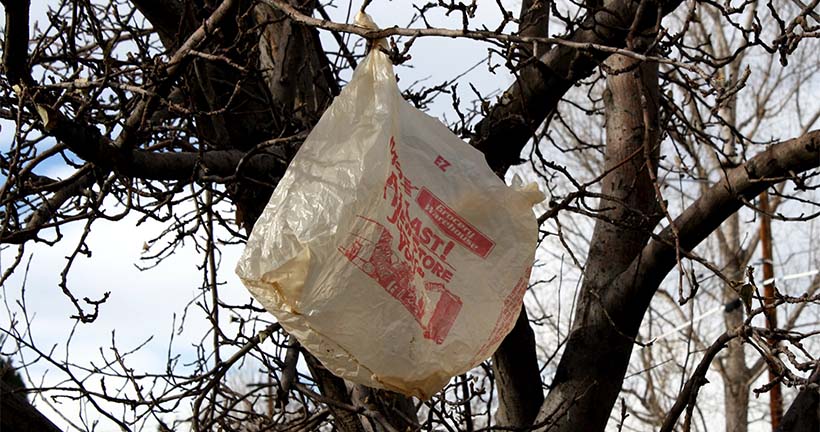The Life Cycle of a Plastic Bag – Infographic

What Is the Lifecycle of a Plastic Bag?
Five trillion disposable plastic bags are produced each year. That’s a whole lot of bags using up a ton of resources, and they have some long-term severe environmental impacts. Check out our infographic to follow the life cycle of a plastic bag, and learn about the entire journey.

Help Us Spread The Message by Sharing the Infographic on Your Website or Blog Using this Code:
<a href="https://www.factorydirectpromos.com/life-cycle-of-a-plastic-bag" ><img src="http://static.factorydirectpromos.com/media/wysiwyg/Infographics/life-cycle-of-plastic-bag-large.jpg" at=“Life Cycle of a Plastic Bag" title="Life Cycle of a Plastic Bag" /></a>
The Role Nonrenewable Resources Play In the Process
Disposable plastic bags are made using nonrenewable resources, like oil and natural gas. These materials are heated and processed into strings stretched to form a thin plastic film that is turned into ubiquitous plastic bags.
The bags are customized with branding and shipped off to retail locations where they are used to pack up customers’ purchases and carry goods. On average single-use plastic bags are used for 20 minutes. It is frustrating to use nonrenewable resources to create bags that are used for a mere 20 minutes. When oil and natural gas are used, that’s it – there is no more. There is a limited supply of these resources, so they need to be responsibly managed.
Recycling Disposable Plastic Bags Is Not Working
It is possible to recycle single-use plastic bags, but only a tiny percentage of the bags created are recycled. If most single-use plastic bags were recycled, that would change the conversation, and it would not be such a waste to use nonrenewable resources.
Some recyclable materials can only be recycled for a specific amount of time. Plastic can be recycled an unlimited amount of times. The hold-up when it comes to recycling plastic bags in the process.
The thin bags can easily become tangled in the machinery, which slows down and complicates the process. For this reason, most recycling facilities do not accept disposable plastic bags, and most people in the U.S. cannot simply toss their old disposable plastic bags in their curbside recycling bin.
Many grocery stores accept old plastic bags for recycling, but a lack of outreach prevents these programs from reclaiming anywhere near the amount of bags handed out.
The Reality for Plastic Bags Once They Have Been Used
Since recycling is not working, you may wonder where all of those plastic bags end up. Most plastic bags end up in landfills or as litter. Many people will reuse disposable plastic bags to line trash cans or clean up after pets, and in these instances, the bags typically end up in the trash and are trucked off to a landfill.
The problem with this turn of events is that disposable plastic bags do not break down. The bags will sit there in a landfill forever. Given time, the plastic will become brittle and break apart into smaller and smaller pieces of plastic.
Some plastic bags end up as litter because people carelessly toss a bag no longer needed on the ground. Sometimes single-use plastic bags end up as litter because a strong breeze lifts a discarded bag out of a garbage can or landfill and carries it off. Litter is a huge nuisance. It is an eyesore and poses a significant risk to animals and their habitats. Studies have shown that the oceans are drowning in plastic litter due to ineffective recycling efforts.
Make the Switch to Reusable Shopping Bags
From wasting nonrenewable resources to inflicting environmental harm, disposable plastic bags are not worth it. On the other hand, reusable shopping bags give you the same benefits and usefulness as single-use plastic bags, but without any of the hassle or harm. The durable construction of our reusable bags means they can be used for many years.
Suppose your business customizes one of our reusable bags to promote your brand. In that case, that reusable bag will be spreading your branding message for years, delivering a fantastic return on your investment.
If you have any questions about working with us or the process or need a quote, get in touch, and we can help you out!
Tagged




